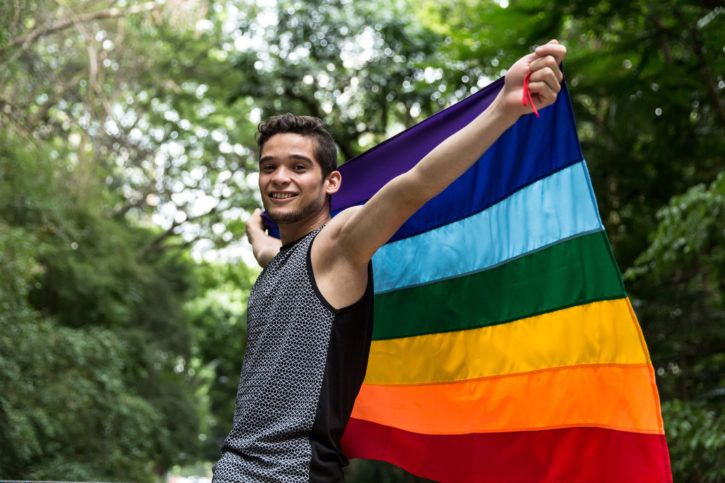
Are you feeling Proud? Are you celebrating Pride Month? What’s the big deal about Pride?
Why is June recognised as Pride Month?
Across the United States – and in many other parts of the world – the month of June is officially recognised as a time to celebrate LGBTQ Pride.
The month of June is significant because the Stonewall riots took place at the end of June in 1969.
Brenda Howard is credited with being one of the main driving forces in coordinating the first LGBTQ Pride march. Howard is also credited with the idea for a week-long series of events around Pride Day. Additionally, Howard – along with fellow activists Robert Martin and Craig Schoonmaker – is credited with popularising the word Pride to describe these events.
Throughout the month of June, towns and cities across the US and around the world will be holding LGBTQ Pride celebrations.
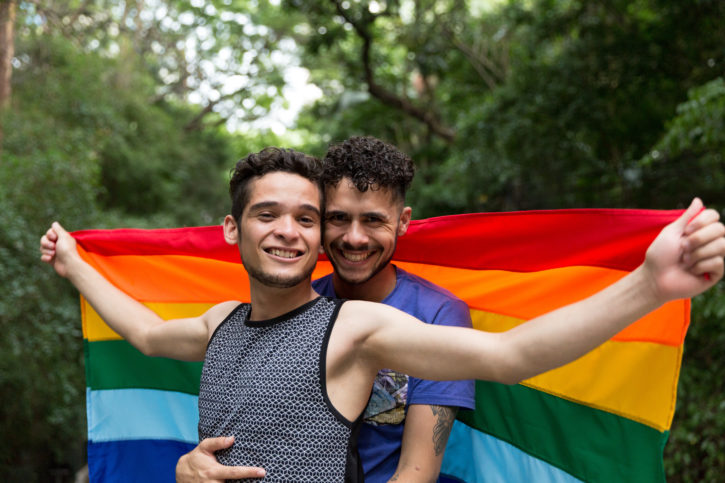
Pride in 2019
This year, Pride Month feels particularly significant. This year marks the 50th anniversary of the Stonewall riots – the flash-point in New York City that helped ignite LGBTQ Pride celebrations as we know them today.
This is also a year where there have been numerous reminders that we can’t assume that victory in our equality battle is inevitable. Whether it’s Trans discrimination in the US, state-sponsored persecution in Chechnya, or anti-gay laws in Brunei – you don’t have to look far to realise we have to continue to fight to hold onto the gains that have been made and secure safety and equality for LGBTQ everywhere.
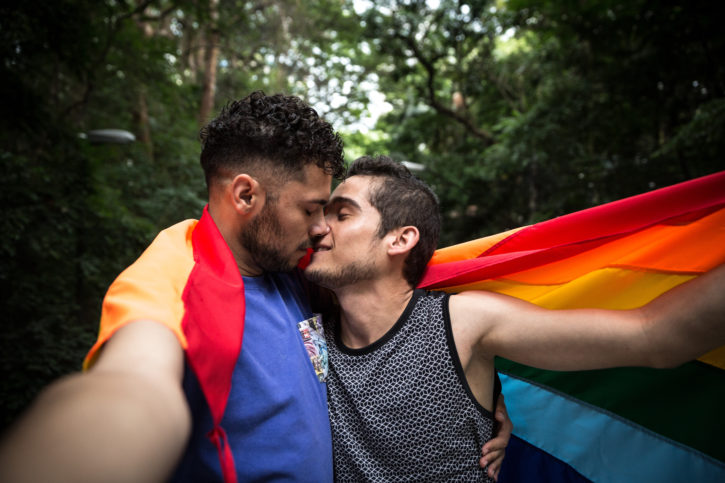
Why were the Stonewall riots a big deal?
The Stonewall riots of 28 June 1969 weren’t the first protests or confrontations between police and the LGBTQ community, but they’ve become symbolic of the growing consciousness and confidence that paved the way for the fight for equality and freedom from discrimination.
What triggered the Stonewall riots was a police raid on the Stonewall Inn. In the heart of Manhattan’s Greenwich Village, the Stonewall Inn was a mafia-run bar that was a bit of a hub for the neighbourhood’s marginalised LGBTQ community.
In the late 60s, police raids on bars like the Stonewall Inn were commonplace – part of the continuing harassment and victimisation that LGBTQ people were experiencing at that time. The raid on the Stonewall Inn on 28 June 1969 sparked that sense of frustration into violent protests – protests that lasted six days and involved thousands of people. Perhaps most importantly, the riots received widespread media coverage.
Prior to the Stonewall riots, the ‘homophile’ advocates – such as the Mattachine Society – that sought to organise and speak for gay men, favoured assimilation. Their objective was to demonstrate that gay men were ‘normal’ and just like everybody else.
Following the Stonewall riots, and in line with the counter-culture movements of the late-60s, representatives of the LGBTQ community became increasingly emboldened and more confrontational. New organisations were established, community-focused newspapers were published, and there was more of a willingness to be open, to be visible, to be different.
It was on the first anniversary of the Stonewall riots, 28 June 1970, that the first gay pride marches were held . The LGBTQ communities of New York, Los Angeles, and Chicago held events to commemorate the raid on the Stonewall Inn and the violent confrontation that followed. The following year, gay pride marches were also held in Boston, Dallas, Milwaukee, London, Paris, West Berlin, and Stockholm – with the number of cities participating continuing to grow in subsequent years.
Today, Pride events and celebrations are a big moment. They’re an important and symbolic opportunity for our community to come together, to celebrate our diversity and our visibility as well as our strength and resilience.
If you’re growing up in today’s world, starting to navigate your sexuality, starting to understand how you connect with the LGBTQ community that you see around you, it’s important to understand how LGBTQ identity has evolved over time, and the role that events such as the Stonewall riots have played in that.
History is important because it helps us learn from those that have gone before us – the battles that have been fought, the struggles that have been won, the mistakes that have been made.
You might not feel that you’ve got much connection with the people who lived in New York City in 1969, but it’s because of those people – because of their lifetimes of harassment and discrimination that culminated in six nights of violence – that we can proudly identify as gay, lesbian, bisexual, trans, queer, or however you want to define yourself within the broad LGBTQ umbrella. It’s because of those people that we can live openly as ourselves, that we can get married if we want, that we can have families if we want, that we have the freedom to lead the lives that we want. It’s because of those people that we continue to hold Pride marches around the world. We honour the marginalised people of Greenwich Village – people who had nothing left to lose, people who were pushed so far that they had no alternative but to stand up to harassment and stand up to discrimination .
But our Pride marches aren’t just to commemorate the Stonewall riots of 1969. Our Pride marches are to continue to demand visibility, to continue to demand equality. Our Pride marches demand solidarity for LGBTQ people around the world, in every country - particularly those where LGBTQ people face oppression, violence, and death, just for being who they are.
In this year, the 50th anniversary of those pivotal nights of violence, let’s remember the people of the Stonewall riots – they’ve helped us achieve so much. But let’s not forget that we need to keep marching - there’s still plenty that we need to fight for.
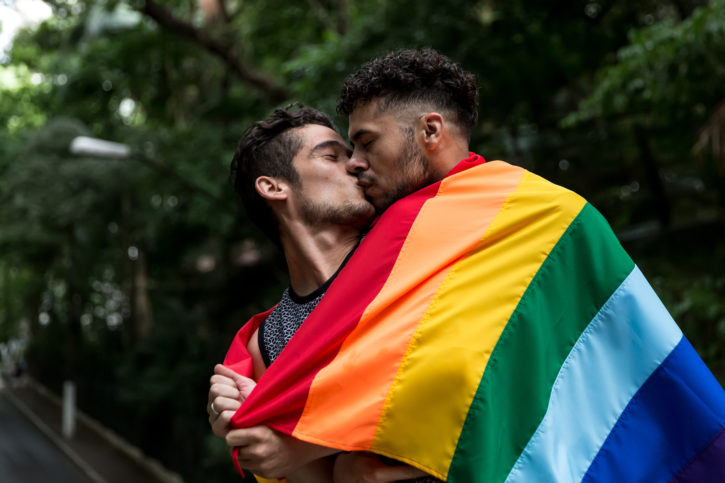
Where to celebrate Pride Month
8 June – Los Angeles
Cities don’t get much gayer than West Hollywood – the gay heart of LA.
8 June – Key West
Key West is old-school gay, but it’s still a really fun place to get naked and celebrate Pride.
22 June – Houston
One of the few Pride marches held after dark, this year’s headliner is Houston-local, Lizzo.
23 June – Toronto
Toronto takes their Pride seriously, but they also know how to throw a great party.
29 June – San Francisco
For decades, San Francisco has helped define our understanding of what it means to be part of a gay community. The city that gave us Harvey Milk is always a great place to wave the rainbow flag.
30 June – Chicago
It could get windy, but it’s worth it.
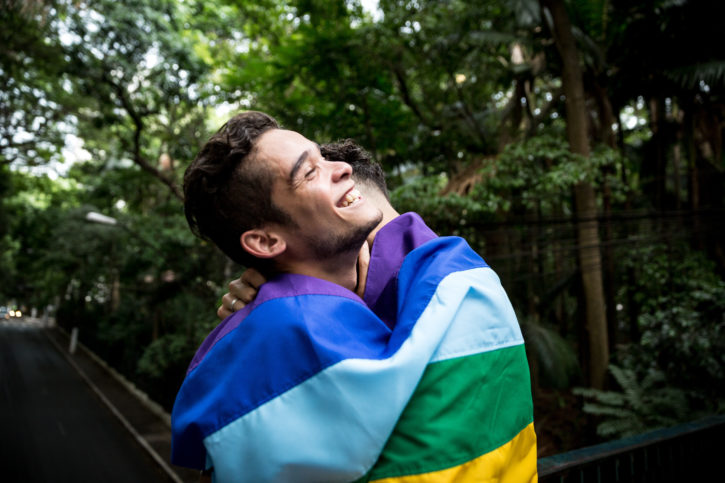
Be part of World Pride
Finish Pride Month off with a bang. World Pride comes to NYC, to help mark the 50th anniversary of where it all began.
New York City’s Pride festival will be running throughout the month of June, culminating in the march on 30 June.
There’s a huge range of events planned – everything from film, theatre, performance, to history, sport, and music.
More than three million people are expected to take part in New York City’s Pride celebrations.
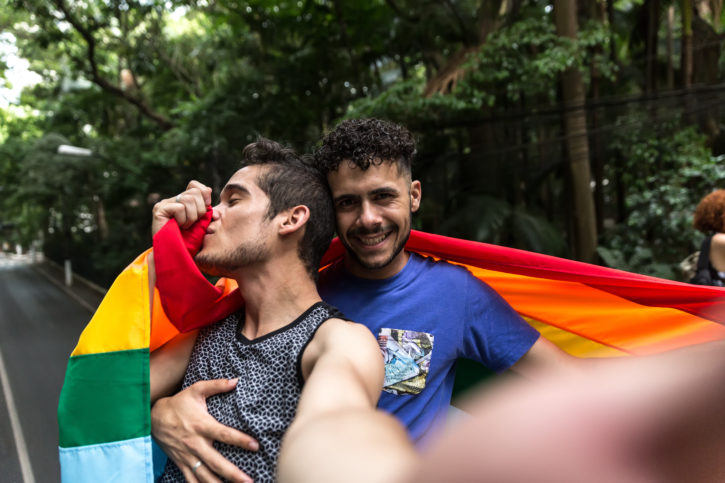

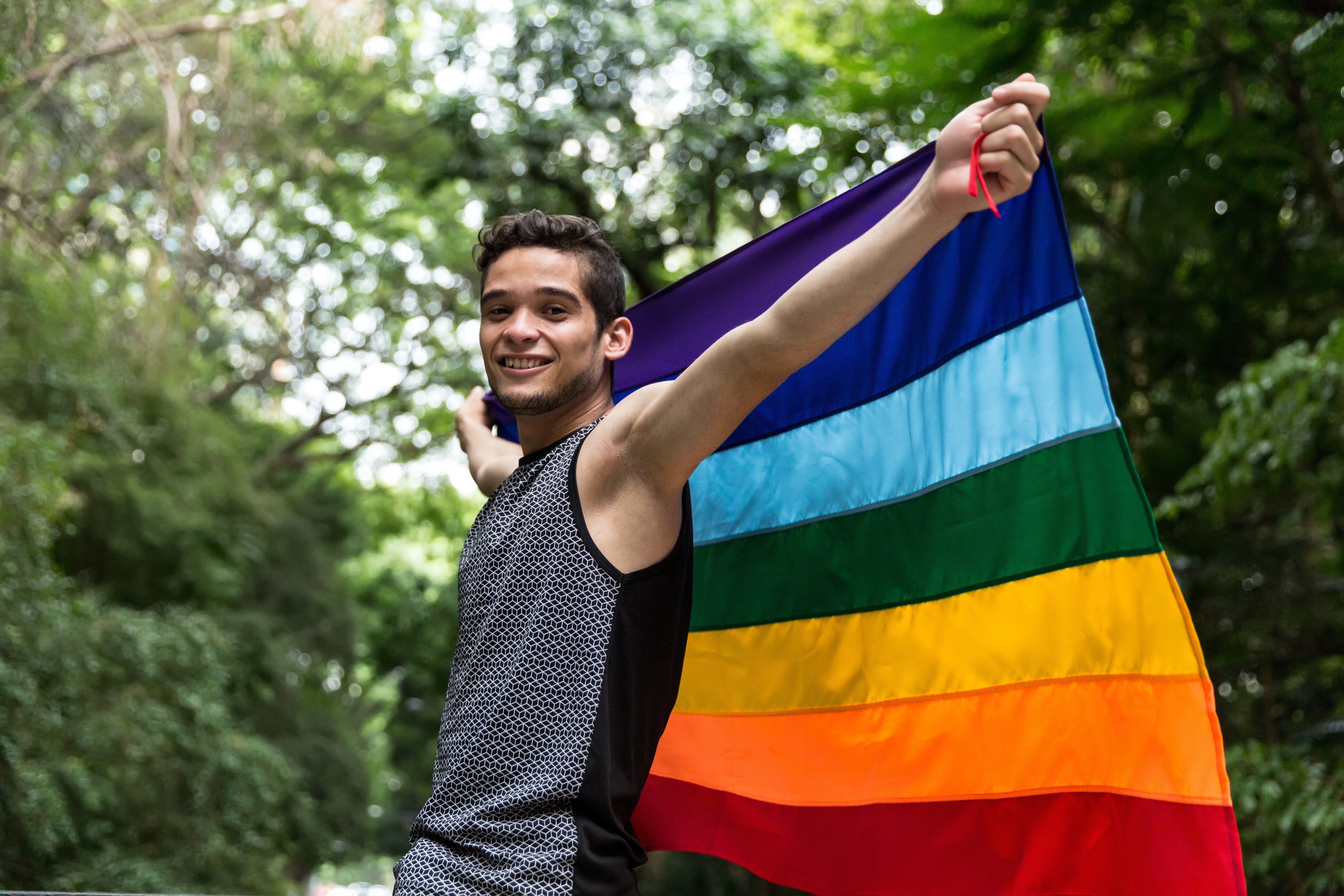
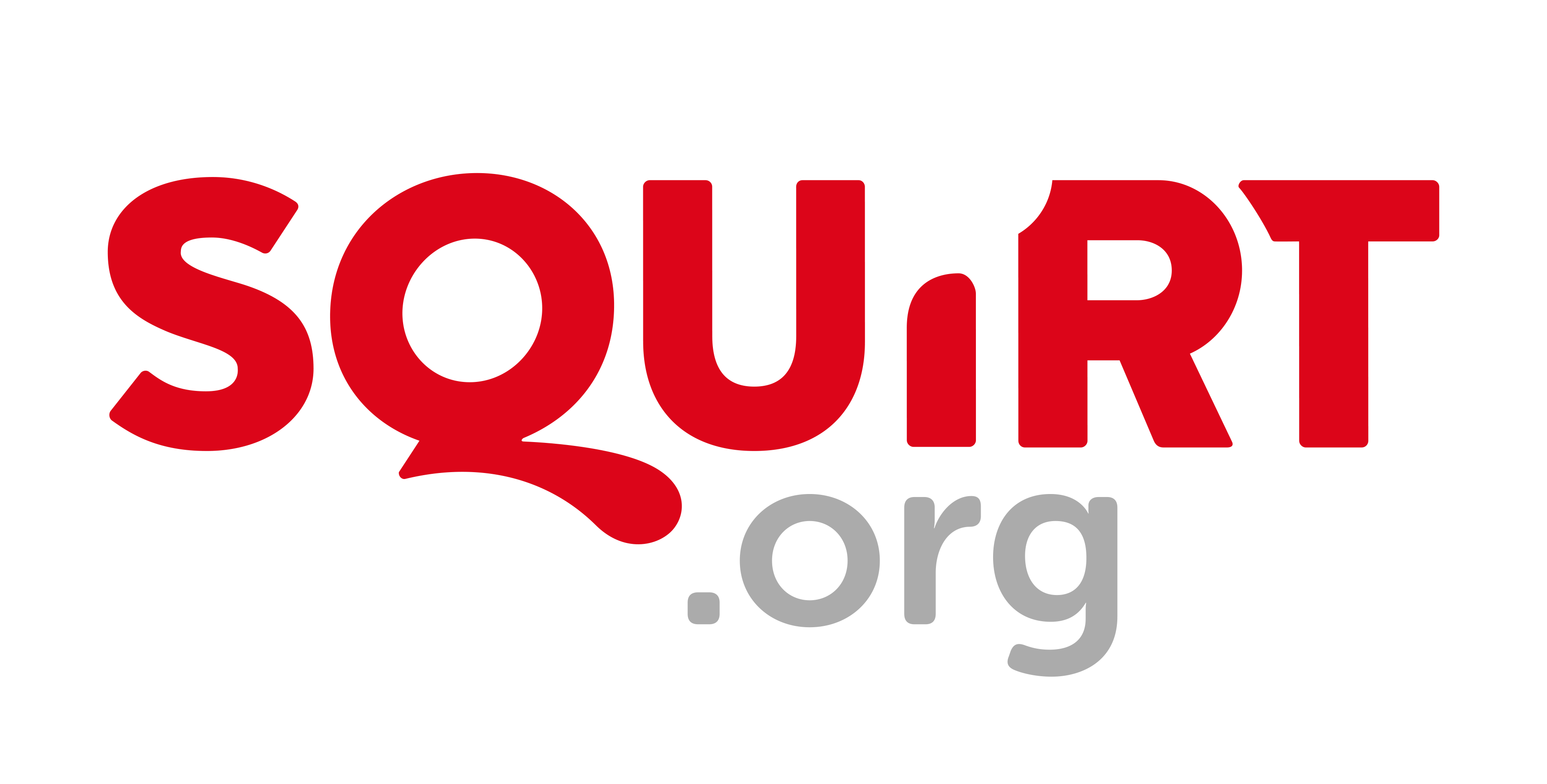
I’m not sure the history, but Pride in Vancouver, where I live, is always the first weekend (the big day being Sunday) in August, probably has something to do with our liquid sunshine (August is reliably warm and dry). The nice thing about Pride at this time of the year is that we get to celebrate all over again!
Nicely condensed history on Pride, most importantly its participants (would have been good to highlight the leading role of the drag queens) and those activists that followed, and it’s importance.
It’s more than a chance for some great partying (if you live in a city that offers that); it’s a chance to remember the importance of resisting attempts to claw back hard won rights; and showing solidarity with those fighting for those very rights or just the chance to live.
I found it noteworthy to reflect back to what was initially realized from Stonewall:
“to be open, to be visible, to be different”
compared to what previous activists had attempted:
“Prior to the Stonewall riots, the ‘homophile’ advocates – such as the Mattachine Society – that sought to organise and speak for gay men, favoured assimilation. Their objective was to demonstrate that gay men were ‘normal’ and just like everybody else.
It seems to me that with the passing of time and the emergence of each new generation or less of queer people – say those coming of age every 5-7 years – and those at the other end of the spectrum – as a group ages every 5-10 years – the goals seem to have returned to those previous to Stonewall. All of the protections, rights and freedoms (which everybody deserves) and a very tiresome desire to assimilate.
If that’s more than my own observations and is in fact a reality – well, to each their own, that’s the point of winning the protections, rights and freedoms – but I think something VERY special is being lost by choosing assimilation over “being open, being visible, and MOST ESPECIALLY BEING DIFFERENT”
Thanks hrychstlvr69, appreciate your point of view. Gareth.
it doesn’t matter to me AT all
No ! Younger gay people do not know the history of the gay movement, nor do they care. And large city’s like the hell hole known as Atlanta have moved pride to fit it’s city schedule and hold it in September !
We just celebrated Pride yesterday Sunday, June 3rd. We had the biggest crowd we ever had. It is definitely no what it used to be, but I’m happy to see people coming out to celebrate and show support.
Thanks homoerectus2k, Happy Pride! Gareth.
get over it … it’s ancient history … faaaaar bigger issues are current in our lives …
Thanks blacktshirt, I think a lot of people would probably agree with you. What are some of the other issues that you feel we should be focusing on? Gareth.
What an incredibly ignorant and dangerous attitude to have.
If the 50th anniversary of something so significant to the queer community is ancient history, how about something really ancient? Like say 80 -100 years ago when a great deal of the groundwork for WWII that killed so many were laid?
What is the history of Egypt and Greece to you? A fairy tale or just the basis for some video games?
We have come long way and more progress to make.
Vancouver Pride started off small when I started going to the pride parade back in the early ’90s but we were visible and noticed as a group of gay men and women in our city. Today our parade is massive and it’s so amazing to see the amount of support that surrounds our community today. Our Pride society also recognizes the need to be visible and the need to support the fight and struggle that still exists in the world today.
Without the history of what happened 50 years ago in NYC, we would not have the rights that we do – anywhere. It was a much-needed movement that has changed our history, the rights that we have as openly LGBTQ men and women. We would not have what we do today without this history and the very brave men and women, drag queens that fought for the simple rights to be seen to be heard, to be recognized. When you see how quickly rights can be taken away from, denied in other parts of the world it should make all of us feel humble and grateful.
Do we need to celebrate Pride month – Hell to the YES!!!!
Awesome gymboddad12! Thanks for sharing your thoughts. Gareth.